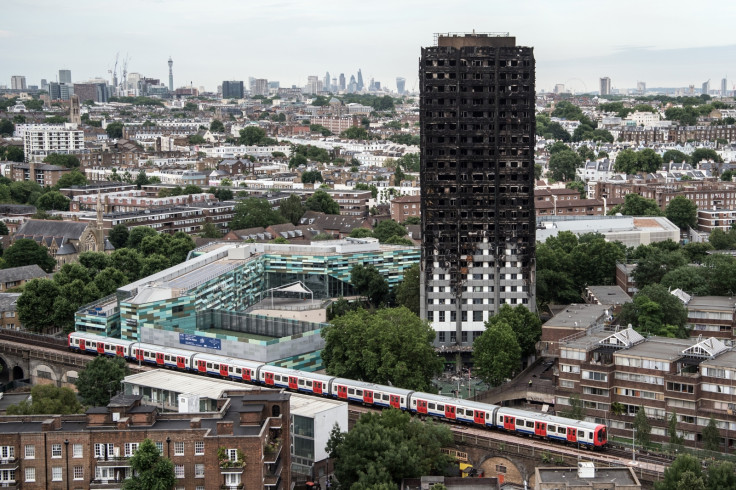Grenfell Tower: Safety report on insulation 'contained errors'
Seventy-one people died in tower block blaze in west London last June.
The fire performance report issued on the plastic insulation that burned on the outside of Grenfell Tower contained a series of errors, the manufacturer has claimed.
The report was issued by BRE, the government's fire safety advisor, which had tested the RS5000 foam panels at its laboratory in 2014. However, according to Celotex, the plastic insulation manufacturer that produced the panels, there were "differences" between the fire test and the report that was issued afterward.
Celotex said it did not know whether the differences highlighted in the document, known as a BR135 report, meant that other buildings using its insulation were safe or not.
"We have identified that one or more additional materials seem to have been used in the rainscreen cladding system which was tested that do not appear in the test report," Celotex said, according to Sky News.
"Our priority is to establish whether there are any fire safety issues arising from these differences."
BRE denied any responsibility for the mistake.
"The information provided by Celotex for inclusion in the report is a question for Celotex - it was their discrepancy not BRE's," it said.
"It is our understanding that the test system was not constructed according to Celotex's design specification and as such, the test results have been withdrawn."
When a building is developed, architects and designers rely on an official certificate which indicates how a combustible cladding system should be built to make it safe in the event of a fire.
The certificate is partly based on a BR135 report.
BRE described its BR135 reports as a "classification of fire performance". Each one states that "the system specification and installation details have been provided by the client".

Lord Porter, the chairman of the Local Government Association, said the revelations were disturbing and shocking.
"They add further doubt that the testing process surrounding the test can be relied upon as proof of product safety," he said.
"It is hugely concerning that such level of doubt has now been cast over the test, not only by different parts of the industry but also by BRE themselves.
"Building owners who are removing flammable cladding urgently need clear advice from the government about what they can and cannot safely put on high-rise blocks as a replacement."
Seventy-one people perished in the blaze that engulfed Grenfell Tower on the night of 14 June, when a fire that began inside a fridge-freezer soon engulfed much of the building.
Hundreds of residents have remained in temporary accommodation and hotels since the tragedy while efforts to rehouse them continue.
A public inquiry into the disaster began on 14 September and an interim report is expected at Easter.






















